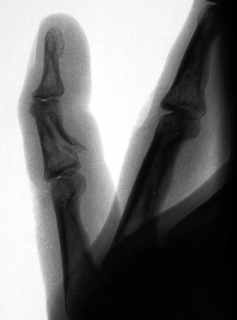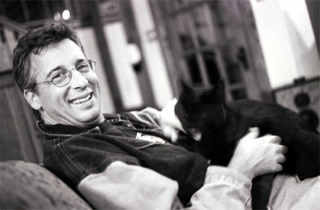| | - 7 September 1999
- Rinehart on Rainier
- "Scotty," I implored, "tell me this doesn't taste like beer-flavored water."
"David," Scotty patiently replied, "this does not taste like beer-flavored water." Scotty seemed sincere, but I wasn't convinced. The people at the Rainier Ale factory have changed both the label on the beverage container as well as the formula of the goo inside. I am not pleased. "Scotty," I beseeched, "tell me this big, red, blobby 'R' on the label that now obscures my view of Mount Rainier doesn't look pug-ugly." "David," Scotty answered, "it does not look pug-ugly. In fact, you could interpret it as an improvement." "Explain yourself," I commanded. (I almost never talk like that, but this was an extraordinary traumatic occasion.) "Well, for one thing, Mount Rainier's bigger on the new label than it was on the old one. That has to be a good thing. And as for the 'R,' just think of it as 'Rinehart on Rainier.' " I had to admit it was a fine argument, but there was one more problem with the new formula that still had to be addressed. "Scotty, what do you have to say about the undisputed fact that the factory technicians have twiddled down the alcohol content from 7.2 percent to 6.6 percent?" I asked. "Well, I suppose I could say that means we can drink more," Scotty replied thoughtfully, "but I'm not going to say that. Instead, I think the more appropriate response is a toast: a pox on greedy, shortsighted, bean-counting twiddlers everywhere!" We repeated the toast again and again until the swill tasted as good as it did in the good old days of last week.  - 8 September 1999
- The Challenge of Repetition
- My literate friend sent me a letter about his lectures to university underlings about the challenge of repetition. I was interested in the subject; it's a mathematical consideration that is increasingly more difficult to ignore as I pursue one endeavor for months, years, decades, perhaps a lifetime. I was surprised to find an unusual description of "inspiration" in his argument.
To be "inspired," in its most clinical sense, means that we continue. To have been "inspired" is one of those miracles, the mystery of which may yield awe and terror. Of course, for an intimate, we offer our intangible caring and grief. These are the moments of our divided nature--the moments when we may best know ourselves--and perhaps the most enduring gift, bestowed as subtly and naturally as inspiration itself.
- As usual, the dense web of words and ideas was too dense for my dense head; I'm not sure I understood most--let alone all--of what he wrote. I intend to reread his treatise later, another well-intentioned resolution I will almost certainly forget. Again. On the most simplistic level--perhaps a too simplistic level, I enjoyed the idea that "uninspired work" might be an oxymoron.
I think I probably misinterpreted what he said, but who cares? Comforting words are welcome, regardless of their veracity.  - 9 September 1999
- Raveling into Inebriation
- Claudio told me that "ravel" means the same thing as "unravel."
Noting my skeptical expression, he admonished me to look it up in a dictionary. I did, and here's what my lame reference volume told me: To say that we will ravel the history of ravel is an ambiguous statement, given that history. Ravel comes from the obsolete Dutch verb ravelen, "to tangle, fray out, unweave," which comes in turn from the noun ravel, "a loose thread." We can see the ambiguity of ravel already in the notion of a loose thread, because threads can be loose when they are tangled or when they are untangling. The Dutch verb has both notions present in it, denoting both tangling and unweaving. In one of its earliest recorded uses in English (before 1585) the verb means "to become entangled or confused," and in 1598 we find a use in the sense "to entangle." But in 1611 the word is used with reference to a fabric in the sense "to fray out," and in 1607 in the sense "to unwind, unweave, or unravel." In 1582 we already have an author using the word in a figurative way to mean "to take to pieces or disentangle," while in a work written before 1656 we have a figurative instance of the sense "to entangle or confuse." Clearly there was a need for the word unravel, which is first found in 1603, but strangely enough it did not solve the problem, ravel retaining up to this day both "entangling" and "disentangling" senses.
- Claudio asked what I thought of the semantic oddity. I told him I was too inebriated to care one way or the other. Claudio responded by informing me that "ebriated" means the same thing as "inebriated," but that's another story for another day.
 - 10 September 1999
- Pooh-pooh Picasso, et cetera
- I'm feeling lazy on a slow Friday. No news here, I'm afraid. I decided to take an appropriately lazy approach and look through an old art magazine to find something to pooh-pooh. It's like shooting fish in a barn; how could I miss?
I found a couple of old anecdotes I hadn't heard, like the one about the feud between Marc Chagall and Pablo Picasso. Picasso: "I know, Chagall, why you don't exhibit in Russia; there's no money to be made there." (Chagall stomps out stage left.) Chagall: "Picasso is a great artist, but why doesn't he paint?" And so on. And then there's the dinner invitation from that ne'er-do-well Avidas Dollars (dba Salvador Dali) to that nice Mr. Yves Tanguy. The flaccid Señor Dali gave Tanguy a plate of fried eggs to eat while he enjoyed course after course of gourmet vittles. "You have talent, Tanguy, therefore you need only to feed it," explained Dali. "I, on the other hand, am a genius, and must nourish my intellect with the most exorbitantly costly dishes. But I am offering you a chance to elevate yourself to my level by serving you fried eggs, a highly Dalinian foodstuff." And so on. And then I got bored. Trying to find something to ridicule in an art magazine was just too easy, even for someone as slothful as myself.  - 11 September 1999
- Expensive Hippie Towns
- A friend from Eugene, Oregon, and a friend from Santa Cruz, California, were discussing psychodemographics with me over a platter of tacos and a case of beer. We came up with a question none of us could answer: "Why are hippie towns so expensive?"
 - 12 September 1999
- Midwife Crisis
- Barbara told me that she said she found her midlife crisis disturbing. I responded by setting my tongue on autopilot to produce a flow of comforting truisms. My friends tell me I'm good at such spoutings.
"I think the important thing to remember when talking about a midlife crisis is that ..." I began. "You weren't listening," she interrupted, "I said midwife crisis." Her interjection confused me. "You're not a midwife and you're not going to have any more kids, so what's a midwife crisis?" I asked. "That's the problem," she replied, "I think I may be having a midwife crisis, but I have no idea what that might mean." And for once, I couldn't come up with a single platitude.  
- 13 September 1999
- Crooked Fingers Run in the Family
- I have a broken finger. Even though I don't know the first thing about reading an x-ray, it looks like a pretty bad break. Bone fragments sticking out at a noticeable angle certainly can't be a good thing.
Oh well. My father had a crooked finger after he broke it; my brother has a crooked finger after he broke it. I guess crooked fingers run in the family. It might even be genetic. Who knows?  - 14 September 1999
- Head versus Body
- Everybody's talking about human head transplants these days. Everybody's talking about the moral ramifications, the legal ramifications, the spiritual ramifications, the medical ramifications, the religious ramifications, et cetera. In fact, they're prattling on about every damn ramification except the only ramification that interests me.
I'm curious about the semantic ramifications of such a procedure. Why is it a head transplant and not a body transplant? I know of people who hold their bodies in higher esteem than their head. (And with good reason, too.)  - 15 September 1999
- The Challenge of Repetition
- My literate friend sent me a letter about his lectures to university underlings about the challenge of repetition. I was interested in the subject; it's a mathematical consideration that is increasingly more difficult to ignore as I pursue one endeavor for months, years, decades, perhaps a lifetime. I was surprised to find an unusual description of "inspiration" in his argument.
To be "inspired," in its most clinical sense, means that we continue. To have been "inspired" is one of those miracles, the mystery of which may yield awe and terror. Of course, for an intimate, we offer our intangible caring and grief. These are the moments of our divided nature--the moments when we may best know ourselves--and perhaps the most enduring gift, bestowed as subtly and naturally as inspiration itself.
- As usual, the dense web of words and ideas was too dense for my dense head; I'm not sure I understood most--let alone all--of what he wrote. I intend to reread his treatise later, another well-intentioned resolution I will almost certainly forget. Again. On the most simplistic level--perhaps a too simplistic level, I enjoyed the idea that "uninspired work" might be an oxymoron.
I think I probably misinterpreted what he said, but who cares? Comforting words are welcome, regardless of their veracity. You can say that again!  
- 16 September 1999
- Gregg Rinehart (snaportrait)
- Gregg is my only sibling.

last interval | index | next interval
©1999 David Glenn Rinehart
| |

